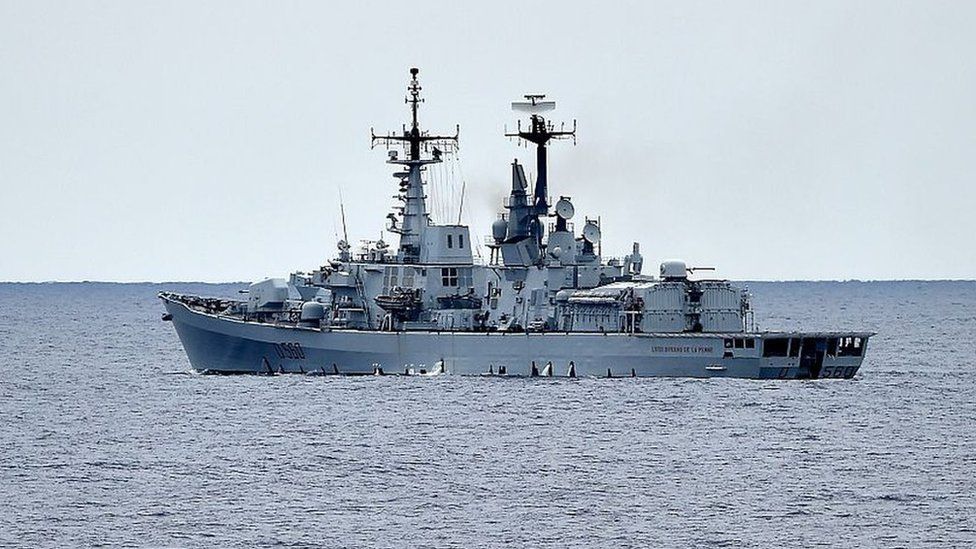Migrant crisis: Italy backs force to police Libya shore
- Published

Italy's cabinet has backed sending a mission to Libya to try to stem the influx of migrants.
The mission would help Libya "reinforce their capacity to control their borders and national territory", said Prime Minister Paolo Gentiloni.
It would reportedly comprise ships, planes and at least 700 sailors.
Mr Gentiloni claimed it had been requested by Libya, but the UN-backed government there vigorously denied making any such request.
In an earlier statement, Libyan Prime Minister Fayez Sarraj said his administration had agreed to receive only training and arms from Italy.
"Libya's national sovereignty is a red line that nobody must cross," he said.
Mr Sarraj, whose administration's control of Libya is limited, held a face-to-face meeting with Mr Gentiloni in Italy on Wednesday.
Mr Sarraj did acknowledge asking Rome for border guards in southern Libya in that meeting.
More than 94,000 migrants have crossed the Mediterranean to Italy so far this year, according to the UN. But more than 2,370 people have died trying.
Migrants picked up in Libyan coastal waters - and not international waters - can be legally returned to Libya, but aid workers say that conditions in Libyan migrant reception camps are dire.
The Italian mission to Libyan coastal waters would reportedly be led by a frigate.
The mission would contribute, Mr Gentiloni told the cabinet meeting, to Libya's "path of stabilisation... and Italy feels it a duty to participate".
The cabinet had "approved what the [Libyan] government requested, no more, no less," he said. He later clarified that the initiative aimed to "support Libya sovereignty, it is not an initiative against Libyan sovereignty".
He said full details of the plan would be presented to parliament on Tuesday.
Push-back plan
On Thursday, French President Emmanuel Macron said Paris would establish migrant registration centres or "hotspots" in Libya - and in the shorter term in Niger and Chad - to vet asylum seekers prior to their attempt to cross into Europe.
And in a letter to Mr Gentiloni last week, the Visegrad group of four (Hungary, Poland, the Czech Republic and Slovakia) pledged financial support for Italian efforts to reduce the flow of irregular migrants from Libya and elsewhere.
Those efforts, the letter outlined, included "EU activities at the southern border of Libya" and the creation of migrant-vetting "hotspots" outside EU territory.
In remarks on 23 June, Hungarian Prime Minister Viktor Orbán spelled out this view, telling journalists: "If we don't want people from Libya to set out for Europe, we have to act accordingly - either on Libya's northern or southern borders.
"Hungary announced that it supports the Italian-German initiative for us to set up check-points and introduce a monitoring system on Libya's southern borders. Hungary is prepared to contribute to this with personnel or funding."
A note on terminology: The BBC uses the term migrant to refer to all people on the move who have yet to complete the legal process of claiming asylum. This group includes people fleeing war-torn countries such as Syria, who are likely to be granted refugee status, as well as people who are seeking jobs and better lives, who governments are likely to rule are economic migrants.
- Published17 July 2017
- Published8 July 2017
- Published6 July 2017
- Published6 July 2017